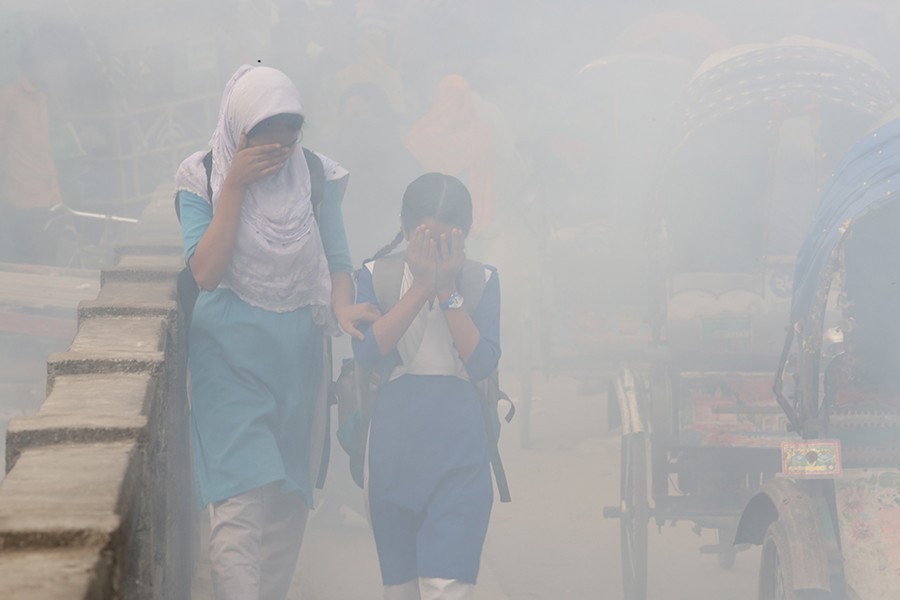"If winter comes, can spring be far behind?" This immortal line by Shelley is filled with the expectation of arrays of happier times after bouts of woes. But the line ironically brings to the mind of many Dhaka readers the three-month-long ordeal they are set to pass through during the whole winter. The line has to be read after a little rearrangement: 'If rain stops, can the winter-dust be resisted?'
At the advent of the relatively dry winter, the Dhaka people these days start bracing for a series of environmental ordeals. It begins with the veils of dust in which the capital of the country remains enveloped throughout the winter. In the earlier times, it was dewdrops on leaves and flower petals in the morning which would welcome people for a day. But trees are vanishing fast as they continue to be felled, thus making way for dust to fill the air. Although the poet Shelley foresaw blithe times after the wintry weather took leave, today's Dhaka dwellers also begin watching the spectres of a nightmarish period with the arrival of winter.
The pre-winter and winter seasons are virtually a dreadful invitation to a festival of dust in Dhaka. It may perversely remind many of the 'Dole Utsab', a major festival of flying coloured dust at Shantiniketan in West Bengal. Dhaka's road-centred dust speaks of sufferings and annoyance only. It is devoid of the furthest semblance of beauty andgaiety. In this pervasive dust, both the children with fresh lungs and the vibrant spirited youths are made to be exposed to the pesky, hazardous dust. A terrible aspect of the pre-winter and winter dust in Dhaka and its outskirts is its terrible impact on elderly people. Every year, hundreds of aged people become bed-ridden upon being attacked by various forms of dust pollution.
Thanks to the long shutdown prompted by the Covid-19 pandemic this year, various types of digging work related to the metro rail construction witnessed suspension after it progressed remarkably. The months-long absence from work by workers and technicians, coupled with occasional bursts of activities, could not yield the desired results. This uneven pace of work has evidently slowed down the implementation of the project. However, the resumption of the workers' involvement saw the restart of the metro rail juggernaut in many vital segments.
In order to finish the job at the earliest, a race against time on the part of the authorities could be noticed at the moment. As a result, a messy situation and a lack of coordination are feared to ensue. In the phase of the frenzied digging and structure relocation works in order to make up for the time lost will only add to the people's woes. Dominant of them is the menace of dust. What's needed now is a thorough appraisal of the prevailing situation. The pandemic's outbreak is now a universal scourge. Without sulking or blaming anyone for the pandemic-prompted dislocations, resumption of the massive projects on a well-thought-out plan is expected to be a pragmatic way out. Still, the formation of a separate dust control urban project ought to be among the fresh imperatives.
The invasion of dust and many airborne toxic pollutants has been afflicting the Dhaka residents for around three decades. Dust takes over the mega city during the dry winter. Dhaka is sitting just before the jaws of a bewildering pandemic monster. Mutant viruses should not be allowed to descend on the city.


